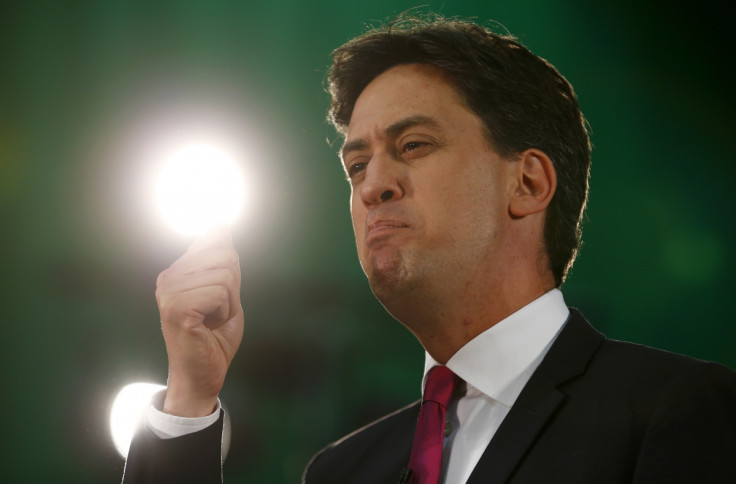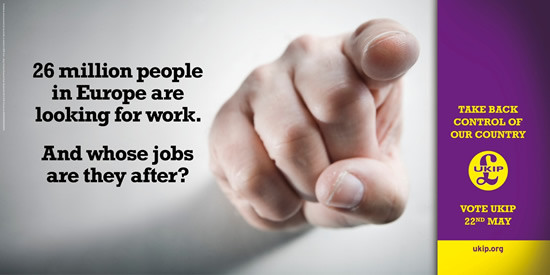Elections 2014: Why the 'Loser' Label May Not Be Disastrous for Ed Miliband's Labour

If Ed Miliband finds himself branded a loser when the results of the EU elections are revealed on Sunday night, at least he won't be alone. It will be some comfort that all three of Britain's mainstream political parties are likely to attract the same label.
For weeks now, Miliband has been facing the prospect that the Nigel Farage, anti-politics surge will deny him the first place prize which, traditionally, should be coming his way in a mid-term election.
And, while much of the attention has been focused on the prospect of the Tories being driven into a humiliating third place, the danger looming for Labour has attracted a little less attention, except in party ranks where there have been signs of the jitters setting in.
There is a fear that, with Miliband already suffering some internal discontent over the effectiveness of his continuing cost of living crisis campaign and his longer-term political strategy, those jitters may turn into something resembling panic.
Farage has claimed, with some validity, that his party is starting to eat into Labour areas in the north, and Miliband has been warned, and accepted, that he should not assume Ukip can only damage the Tories.
The worry for the following general election would be if Tory defectors to Ukip returned to the party come polling day while former Labour supporters did not.

However, despite the extraordinary circumstances, there have been some rays of sunshine for Miliband, with recent polls suggesting a Farage victory may not be a done deal after all.
The relentless media focus on Ukip and its alleged racism appear to be having some effect with one poll, at least, suggesting Labour might still come first, and others that the Ukip lead is narrow and fragile.
Under normal circumstances, Labour should receive an electoral boost in these contests. They probably cannot expect too much from the local polls where they are already starting from a high, but the last EU elections were held in 2009 when Gordon Brown was at the height of his unpopularity.
As a result, Labour should pick up a fistful of new seats in the 73-strong UK group in the European parliament, building on its current 13 places. Much less than that would be branded a bad result by the other parties, despite the fact they are likely to do worse themselves.
All this explains why the party has, some say belatedly, started to concentrate its fire onto Farage, with senior figures branding him racist.
Miliband has not gone that far, declaring only that Farage's comments about not wanting Romanians living next door were "deeply offensive" and a "a racial slur", adding: "I think our politics is disagreeable enough without political leaders saying about other leaders 'they're a racist'.
A second place to Ukip would clearly be disappointing for Miliband but it would not be disastrous. There would be recriminations over the tone of the campaign and demands for a more robust anti-Farage stance and moves to regain lost voters, but much of it would be overshadowed by a Tory collapse into third place and possible Liberal Democrat near-wipeout.
A win, however, would give a disproportionate boost to Miliband not only because it would mean he could claim to have stalled the Ukip bandwagon but because it would also suggest the Tories had suffered most at Farage's hands.
© Copyright IBTimes 2025. All rights reserved.






















